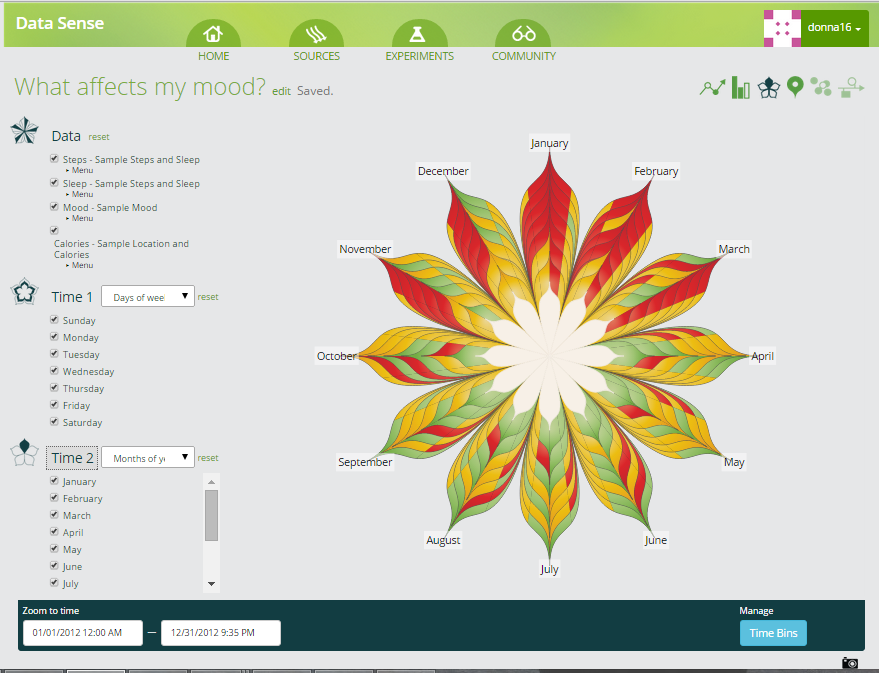Intel anthropologist creates data processing tool for Quantified Self community

When data can be both individual, and potentially aggregated across many people, who does and does not have a say in what “the data†ultimately means? A thought provoking piece by Dawn Nafus, an anthropologist at Intel Labs.
Through [our] work [with the Quantified Self community] we [anthropologists] realized that there were in fact plenty of people who were interested in getting beyond the canned, fixed representations of data provided by apps makers, but were not necessarily interested in learning statistics or experimental science. […] Self-trackers appropriate scientific practices for their own ends, but they also go beyond them.1 They turn to artistic and narrative practices as modalities of making sense of numbers, text, and visual forms, while comfortably tacking back and forth between these and science-inspired experimentation. More rarely, some do use the scientific aspects of what they’ve done to speak back to institutionalized research, but it is a speaking back with a difference, grounded in lived experience as much as the science. […]
I got together with a group of engineering colleagues to figure out what we could do to support people who are interested in asking questions of their own data, in order to help them find new ways of looking at it.
The resulting data processing tool, Data Sense, is now in beta, and raises quite a few interesting issues on the role of the ethnographer in the Big Data world.



